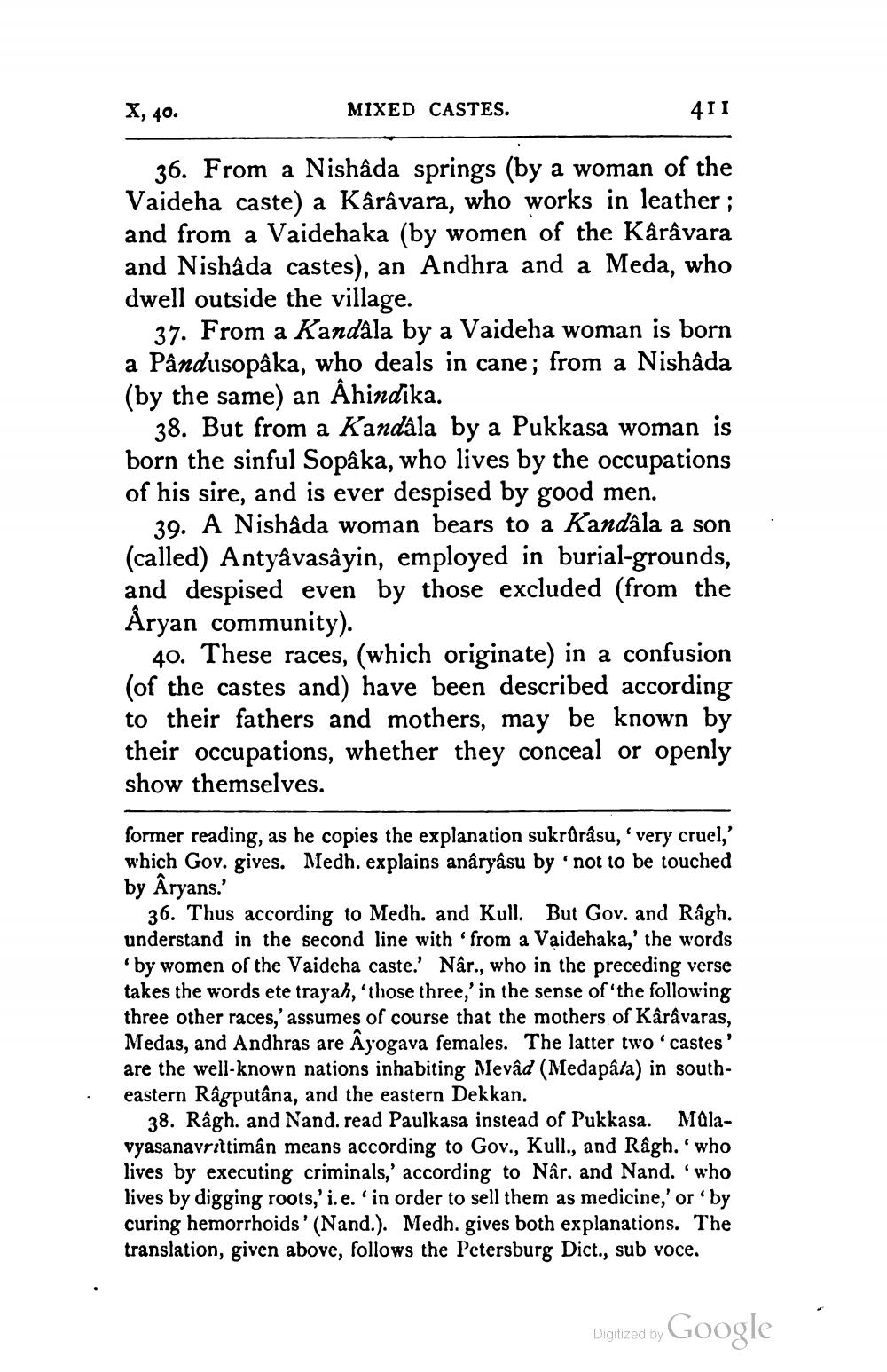________________
X, 40.
MIXED CASTES.
411
36. From a Nishâda springs (by a woman of the Vaideha caste) a Kârâvara, who works in leather ; and from a Vaidehaka (by women of the Kârâvara and Nishâda castes), an Andhra and a Meda, who dwell outside the village.
37. From a Kandala by a Vaideha woman is born a Pândusopâka, who deals in cane; from a Nishâda (by the same) an Åhindika.
38. But from a Kandala by a Pukkasa woman is born the sinful Sopâka, who lives by the occupations of his sire, and is ever despised by good men.
39. A Nishâda woman bears to a Kandala a son (called) Antyavasâyin, employed in burial-grounds, and despised even by those excluded (from the Åryan community).
40. These races, (which originate) in a confusion (of the castes and) have been described according to their fathers and mothers, may be known by their occupations, whether they conceal or openly show themselves.
former reading, as he copies the explanation sukrûrâsu,' very cruel,' which Gov. gives. Medh. explains anâryâsu by 'not to be touched by Aryans.'
36. Thus according to Medh. and Kull. But Gov. and Râgh. understand in the second line with 'from a Vaidehaka,' the words
by women of the Vaideha caste.' Nár., who in the preceding verse takes the words ete trayah, 'those three,' in the sense of the following three other races,' assumes of course that the mothers of Kârâvaras, Medas, and Andhras are Âyogava females. The latter two 'castes are the well-known nations inhabiting Mevâd (Medapata) in southeastern Râgputâna, and the eastern Dekkan.
38. Râgh. and Nand. read Paulkasa instead of Pukkasa. Malavyasanavrittimán means according to Gov., Kull., and Râgh.'who lives by executing criminals,' according to Nar. and Nand. who lives by digging roots,' i.e. in order to sell them as medicine,' or by curing hemorrhoids' (Nand.). Medh. gives both explanations. The translation, given above, follows the Petersburg Dict., sub voce.
11.
Digitized by Google




